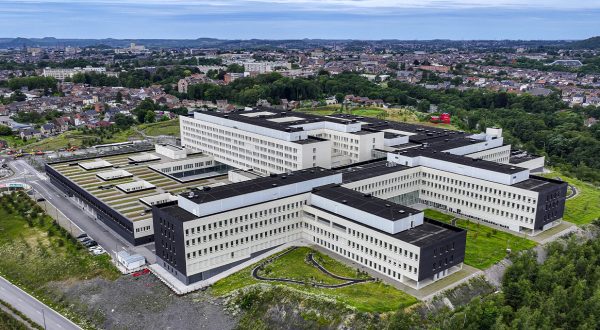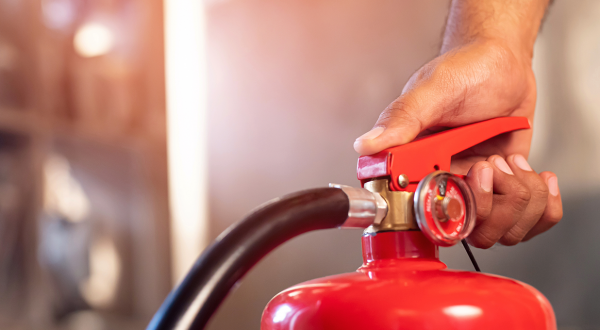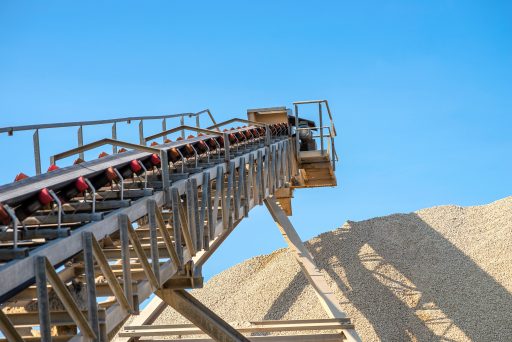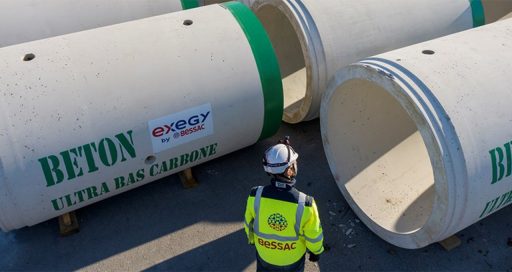How Uxello is reducing the carbon footprint of its steel pipes
Reading time: 4 min
A consumer of large quantities of steel pipes for the prefabrication of fire sprinkler systems, the Uxello Fabrication-Profab factory, along with its suppliers, has created an innovative steel production solution with a reduced carbon footprint.
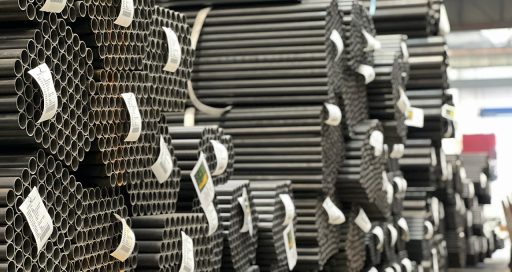
Uxello Fabrication-Profab is a factory specialising in prefabricating fire sprinkler systems for use in Uxello (VINCI Energies) business unit projects. The facility, located in the Aisne department, a hundred or so kilometres north of Paris, processes and transforms around 3,000 tonnes of steel pipe a year for this purpose. Steel production in blast furnaces is a major source of greenhouse gas emissions.
A blast furnace is an industrial installation designed to simultaneously deoxidise and melt the metals contained in ores, powered by carbon-rich solid fuel. Generally, a blast furnace transforms iron ore into liquid iron by burning coke, which serves both as fuel and as the oxidising agent. Every tonne of steel produced in this way generates between 2 and 2.5 tonnes CO2 equivalent, comparable to driving a combustion-powered car 11,489 kilometres.
So, how can an operation like the Uxello factory reduce its carbon emissions? This is one of many challenges facing the Group’s managers.
“Pipes at the same price or cheaper than conventional products, of the same quality but with major environmental benefits.”
“In discussions with our supplier, ZNB (Zuid Nederlandse Buizen), we wanted to find a solution to reduce our carbon footprint as quickly as possible,” says Nicolas Bauer, Purchasing Manager at Uxello France.
Recycled materials
Discussions between Uxello and ZNB started in spring 2022 and rapidly hit upon an innovative solution for low-carbon steel pipe manufacture, presented internally at Uxello in January 2023.
As Jean-Claude De Vale, Business Unit Manager at Uxello Fabrication, explains, “This new pipe is made from recycled materials in an electric arc furnace powered by energy from wind, hydroelectric and potentially, solar power plants, and using low-carbon hydrogen to deoxidise the steel directly. With this method, we obtain steel for just 400 to 700 kg of CO2 emissions per tonne – an 80 percent reduction in our emissions for pipes.”
Uxello Fabrication has already ordered 500 tonnes of pipes produced using the new process, with delivery scheduled for the third quarter of 2023. “We are the only place in Europe, and probably the world, using this production method with 100 percent recycled materials,” says Nicolas Bauer. “We really are breaking new ground in materials for fire protection. Certifications for the process are on the way. We now need to establish this market and encourage greater demand from our Uxello business units and their customers.”
Driving down prices
Although these lower-carbon steel pipes are currently around 20 or 30 percent more expensive than those produced in fossil fuel-powered blast furnaces, Uxello Fabrication has plans to reduce the costs in short order.
The supply chain for the low-carbon pipes currently relies on two German companies: Salzgitter for the parent coils of steel, produced in an electric arc furnace; and Stahl-Becker for slitting, the process of transforming the parent coils into narrower coils the width of the pipes. A factory in Italy then transforms these coils into pipes.
But, says Nicolas Bauer: “We are working to reduce costs and also further shrink the carbon footprint by shortening our chain of intermediaries.”
01/18/2024
